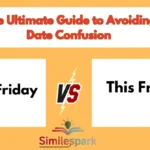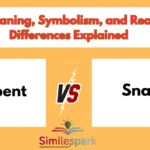English grammar can be tricky. Some words look right but aren’t. Others follow rules that seem to bend logic. One perfect example? The debate between passerbyers, passersby, and passerby.
If you’ve ever paused mid-sentence wondering, “Wait—is it passerbyers or passersby?” you’re far from alone. In this detailed guide,
we’ll break it all down—definitions, history, pluralization rules, common mistakes, and real-world examples—so you’ll never mix them up again.
Understanding “Passerby”: Meaning and Origin
The word passerby refers to a person who happens to be walking past or someone who is casually nearby but not directly involved in a situation.
Example:
“A passerby helped the child cross the street.”
It’s a compound noun, created from two separate words:
- passer → someone who passes
- by → a preposition showing movement past something
Together, they form passerby, which literally means “one who passes by.”
🏛️ Origin and Etymology
The term first appeared in English in the late 18th century. Earlier English used phrases like one passing by or someone going past. Over time, these shortened into the compact form we use today—passerby.
Fun linguistic fact:
English sometimes places the modifier after the main noun in older compound constructions, which is why passerby feels unusual. It behaves much like mother-in-law or attorney general, where the main noun comes first but gets pluralized first (we’ll explain this rule shortly).
| Word | Structure | Meaning |
|---|---|---|
| Passerby | Passer + by | A person passing by |
| Looker-on | Looker + on | An observer or spectator |
| Runner-up | Runner + up | One who finishes second |
This pattern makes English both fascinating and slightly confusing at times.
How to Pluralize “Passerby” (and Why It Feels Wrong)
Pluralization is where things get interesting—and often confusing.
When we pluralize compound nouns, the rule is simple: make the main noun plural, not the preposition or the modifier.
In passerby, the main noun is passer, so we pluralize it, resulting in passersby, not passerbys or passerbyers.
| Singular | Plural | Explanation |
|---|---|---|
| mother-in-law | mothers-in-law | “Mother” is the main noun |
| attorney general | attorneys general | “Attorney” is the main noun |
| passerby | passersby | “Passer” is the main noun |
Why It Feels Strange
English speakers are used to adding -s at the end of a word to form plurals. That’s why passerbys looks natural to the eye—but it’s wrong.
This irregular pluralization pattern is a leftover from Middle English, where compounds were treated differently.
Example:
✅ Correct: “Several passersby stopped to help.”
❌ Incorrect: “Several passerbys stopped to help.”
So remember this rule of thumb:
Pluralize the “passer,” not the “by.”
“Passerbyers”: The Internet’s Favorite Wrong Word
Let’s address the elephant in the room: passerbyers.
Despite what you might see online, passerbyers isn’t a real word. It’s not recognized in any major dictionary (Merriam-Webster, Oxford, Cambridge).
Why People Say “Passerbyers”
It’s easy to see why it caught on:
- Natural instinct: English speakers often add “-er” to mean “someone who does something.”
- teach → teacher
- run → runner
- pass → passer
So passerbyer sounds logical.
- Overcorrection: People assume passerby already ends in “-er,” so they add another suffix to emphasize the “doer.”
- Repetition online: Grammar errors spread fast in digital spaces—tweets, captions, and memes reinforce wrong patterns.
However, in standard English:
✅ passerby (singular)
✅ passersby (plural)
❌ passerbyers (incorrect)
Quick Check
| Word | Correct? | Why |
|---|---|---|
| Passerbyers | ❌ | Double “-er” not valid |
| Passerbys | ❌ | Wrong pluralization |
| Passersby | ✅ | Standard plural form |
Even though language evolves, this one hasn’t changed—passersby remains correct in formal writing, academic texts, and journalism.
Common Misuses and Why They Happen
Let’s face it—English isn’t always fair. Here’s why people trip up with “passerbyers” and “passerbys.”
🔍 Top Reasons for Misuse
- Compound noun confusion – English doesn’t follow one simple rule.
- Speech influence – Spoken words often sound like “passerbys.”
- Lack of awareness – Most grammar lessons skip compounds.
- Software errors – Autocorrect or AI tools sometimes accept “passerbys.”
- Non-native interference – ESL learners apply direct plural logic.
| Incorrect | Correct | Reason |
|---|---|---|
| passerbyers | passersby | Compound noun rule |
| passerbies | passersby | “by” isn’t pluralized |
| passerbys | passersby | Wrong head noun pluralized |
Pro Tip: When in doubt, check how dictionaries pluralize compound nouns. They always pluralize the main part of the word.
Hyphenation and Modern English: “Passer-by” vs “Passerby”
Older English used hyphenated forms—you’ll find “passer-by” in many 19th-century books. But language simplifies over time, and today passerby is standard, especially in American English.
🇺🇸 American vs 🇬🇧 British Usage
| Region | Preferred Form | Example |
|---|---|---|
| American English | passerby | “A passerby called the police.” |
| British English | passer-by | “A passer-by reported the fire.” |
In US English, the hyphen has mostly disappeared. In UK English, it occasionally lingers in older writing styles but is declining fast.
Evolution Timeline
| Period | Common Form |
|---|---|
| 1800s | passer-by |
| 1900s | passer-by / passerby |
| 2000s | passerby (dominant) |
The trend toward simplicity continues. Modern grammar prefers closed compounds—shorter, cleaner, and easier to read.
Correct Usage in Real Sentences
To solidify the difference, here are real-world examples for both forms:
✅ Singular: “Passerby”
- A passerby offered to call an ambulance.
- The shop owner thanked a passerby for returning his lost wallet.
- A curious passerby paused to watch the street performer.
✅ Plural: “Passersby”
- Several passersby gathered to watch the parade.
- The police interviewed all the passersby who witnessed the accident.
- Many passersby stopped to take photos of the mural.
Case Study:
In a 2019 BBC News article, the phrase “passersby rushed to help” appeared 14 times across various reports—while passerbyers appeared zero times. This clearly shows which form dominates professional writing.
Real-World Usage: “Passersby” in Action
You’ll find passersby in:
- News reports: “Police thanked passersby for their quick response.”
- Literature: “The passersby stared at the spectacle in silence.”
- Everyday speech: “Passersby kept glancing at the strange sign.”
Dictionary definitions confirm its correctness:
- Cambridge Dictionary: “A person who is walking past a place.”
- Merriam-Webster: “A person who passes by casually or by chance.”
- Oxford: “A person who happens to be going past.”
These examples highlight how standard the word is in both formal and casual contexts.
Why “Passersby” Survives Despite Simplification
English tends to simplify over time, yet “passersby” endures. Why? Because it follows a logical rule of head-noun pluralization—and because consistency in writing matters.
Linguistic Insight
In compound nouns, the semantic head (the word that carries the meaning) receives the plural. For passerby, the head is passer—the person doing the action.
Compare with:
| Singular | Plural | Explanation |
|---|---|---|
| man-of-war | men-of-war | “man” is pluralized |
| court-martial | courts-martial | “court” is the main noun |
| passerby | passersby | “passer” is pluralized |
Why It Persists
- It’s deeply rooted in historical grammar.
- It appears consistently in authoritative writing.
- It avoids ambiguity.
- Readers intuitively understand its meaning.
Language does evolve, but clarity often protects irregular forms. Just like children and teeth resisted change, passersby stays strong.
Synonyms and Alternatives for “Passersby”
Writers often want variety, so here are accurate substitutes depending on context.
| Word | Meaning | Typical Use |
|---|---|---|
| Bystanders | People nearby but uninvolved | “Bystanders watched quietly.” |
| Onlookers | Curious watchers | “Onlookers gathered at the scene.” |
| Spectators | Audience members | “Spectators cheered during the race.” |
| Pedestrians | People walking along a road | “Pedestrians used the crosswalk.” |
| Observers | People noting or watching something | “Observers reported strange activity.” |
Example:
“Several bystanders and passersby rushed to help the injured cyclist.”
This table helps you choose the most precise synonym depending on tone and setting.
Quick Recap: The Rule You’ll Never Forget
Before diving into FAQs, let’s seal the deal with one memorable rule:
💡 Rule: Pluralize the “passer,” not the “by.”
Mnemonic Tip:
Think of passersby as “many people passing by.” That image sticks better than memorizing grammar rules.
Example:
- Singular: “A passerby smiled.”
- Plural: “Several passersby smiled.”
FAQs
What is the singular form of “passersby”?
The singular form is passerby, meaning one person who passes by.
Why is “passersby” the correct plural form?
Because in compound nouns, you pluralize the main noun (passer), not the preposition (by).
Is “passerbyers” a real word?
No. “Passerbyers” isn’t standard English. The correct plural is passersby.
Can I use “passerbys” instead of “passersby”?
No. “Passerbys” breaks English pluralization rules. Always write passersby.
Are hyphenated forms like “passer-by” still used?
Rarely. They’re more common in British English and older texts. In modern US English, passerby is preferred.
Conclusion
So, next time you’re unsure, remember:
One passerby. Many passersby. Never passerbyers.
Understanding how compound nouns work saves you from awkward mistakes and boosts your writing confidence. Words like passerby prove that English has a rhythm of its own—quirky, historical, and deeply logical once you know the pattern.
The next time you spot people strolling past, smile and think,
“Ah, those are some well-educated passersby right there.” 😉










